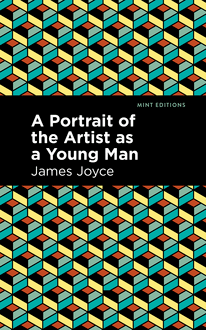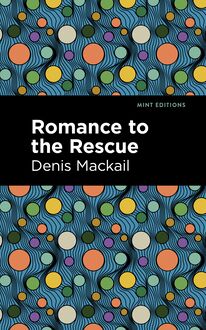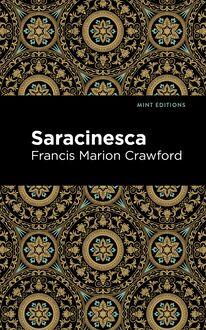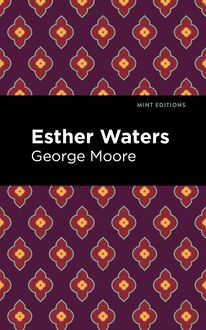-
 Univers
Univers
-
 Ebooks
Ebooks
-
 Livres audio
Livres audio
-
 Presse
Presse
-
 Podcasts
Podcasts
-
 BD
BD
-
 Documents
Documents
-
- Cours
- Révisions
- Ressources pédagogiques
- Sciences de l’éducation
- Manuels scolaires
- Langues
- Travaux de classe
- Annales de BEP
- Etudes supérieures
- Maternelle et primaire
- Fiches de lecture
- Orientation scolaire
- Méthodologie
- Corrigés de devoir
- Annales d’examens et concours
- Annales du bac
- Annales du brevet
- Rapports de stage
La lecture à portée de main
Vous pourrez modifier la taille du texte de cet ouvrage
Découvre YouScribe en t'inscrivant gratuitement
Je m'inscrisDécouvre YouScribe en t'inscrivant gratuitement
Je m'inscrisEn savoir plus
Vous pourrez modifier la taille du texte de cet ouvrage
En savoir plus

Description
“The greatest tragic writer among English novelists.”-Virginia Woolf
“There is no other novelist alive with the breadth of sympathy, the knowledge or the power for the creation of Jude." —H.G. Wells
Jude the Obscure, the semi-autobiographical final novel from Thomas Hardy explores notions of surprising candor; within the eponymous protagonist lies the tragic truth of failed ambitions and relationships. In a fierce exploration of the darkness of love and the intellect, this is one of the great tragic novels of English literature.
Jude Fawley, an earnest boy from a rural English village, dreams of a life of academia despite his working-class background. His childhood schoolmaster has moved away from the village to teach at the University in Christminster. Jude spends his free time self-educating himself with the aspirations of enrolling at Christminster, yet his dreams are thwarted when he falls in love with Arabella, a loutish and deceptive young woman who lures him into a disastrous marriage. After abandoning each other, Jude returns to his dream of becoming a scholar; he moves to Christminster, where he falls in love with his cousin Sue Bridehead, and subsequently abandons all hope of academia. An intricate web of darkness ensues when Arabella returns into his life with a troubled son, who she informs is Jude’s. Trapped in an uncontrollable descent, Jude’s fate delivers him unspeakable tragedy. Jude The Obscure is one of literature's great works that explore the alienation and intricacies of man’s place in the world.
With an eye-catching new cover, and professionally typeset manuscript, this edition of Jude the Obscure is both modern and readable.
Sujets
Informations
| Publié par | Mint Editions |
| Date de parution | 06 octobre 2020 |
| Nombre de lectures | 3 |
| EAN13 | 9781513268132 |
| Langue | English |
Informations légales : prix de location à la page 0,0500€. Cette information est donnée uniquement à titre indicatif conformément à la législation en vigueur.
Extrait
Jude the Obscure
Thomas Hardy
Jude the Obscure was first published in 1895.
This edition published by Mint Editions 2020.
ISBN 9781513266183 | E-ISBN 9781513268132
Published by Mint Editions®
minteditionbooks.com
Publishing Director: Jennifer Newens
Project Manager: Gabrielle Maudiere
Design & Production: Rachel Lopez Metzger
Typesetting: Westchester Publishing Services
C ONTENTS P ART I A T M ARYGREEN , I–XI P ART II A T C HRISTMINSTER , I–VII P ART III A T M ELCHESTER , I–X P ART IV A T S HASTON , I–VI P ART V A T A LDBRICKHAM AND E LSEWHERE , I–VIII P ART VI A T C HRISTMINSTER A GAIN , I–XI
PART I
AT MARYGREEN
Yea, many there be that have run out of their wits for women, and become servants for their sakes. Many also have perished, have erred, and sinned, for women… O ye men, how can it be but women should be strong, seeing they do thus?
—E SDRAS
Chapter I
T he schoolmaster was leaving the village, and everybody seemed sorry. The miller at Cresscombe lent him the small white tilted cart and horse to carry his goods to the city of his destination, about twenty miles off, such a vehicle proving of quite sufficient size for the departing teacher’s effects. For the schoolhouse had been partly furnished by the managers, and the only cumbersome article possessed by the master, in addition to the packing-case of books, was a cottage piano that he had bought at an auction during the year in which he thought of learning instrumental music. But the enthusiasm having waned he had never acquired any skill in playing, and the purchased article had been a perpetual trouble to him ever since in moving house.
The rector had gone away for the day, being a man who disliked the sight of changes. He did not mean to return till the evening, when the new school-teacher would have arrived and settled in, and everything would be smooth again.
The blacksmith, the farm bailiff, and the schoolmaster himself were standing in perplexed attitudes in the parlour before the instrument. The master had remarked that even if he got it into the cart he should not know what to do with it on his arrival at Christminster, the city he was bound for, since he was only going into temporary lodgings just at first.
A little boy of eleven, who had been thoughtfully assisting in the packing, joined the group of men, and as they rubbed their chins he spoke up, blushing at the sound of his own voice: “Aunt have got a great fuel-house, and it could be put there, perhaps, till you’ve found a place to settle in, sir.”
“A proper good notion,” said the blacksmith.
It was decided that a deputation should wait on the boy’s aunt—an old maiden resident—and ask her if she would house the piano till Mr. Phillotson should send for it. The smith and the bailiff started to see about the practicability of the suggested shelter, and the boy and the schoolmaster were left standing alone.
“Sorry I am going, Jude?” asked the latter kindly.
Tears rose into the boy’s eyes, for he was not among the regular day scholars, who came unromantically close to the schoolmaster’s life, but one who had attended the night school only during the present teacher’s term of office. The regular scholars, if the truth must be told, stood at the present moment afar off, like certain historic disciples, indisposed to any enthusiastic volunteering of aid.
The boy awkwardly opened the book he held in his hand, which Mr. Phillotson had bestowed on him as a parting gift, and admitted that he was sorry.
“So am I,” said Mr. Phillotson.
“Why do you go, sir?” asked the boy.
“Ah—that would be a long story. You wouldn’t understand my reasons, Jude. You will, perhaps, when you are older.”
“I think I should now, sir.”
“Well—don’t speak of this everywhere. You know what a university is, and a university degree? It is the necessary hallmark of a man who wants to do anything in teaching. My scheme, or dream, is to be a university graduate, and then to be ordained. By going to live at Christminster, or near it, I shall be at headquarters, so to speak, and if my scheme is practicable at all, I consider that being on the spot will afford me a better chance of carrying it out than I should have elsewhere.”
The smith and his companion returned. Old Miss Fawley’s fuel-house was dry, and eminently practicable; and she seemed willing to give the instrument standing-room there. It was accordingly left in the school till the evening, when more hands would be available for removing it; and the schoolmaster gave a final glance round.
The boy Jude assisted in loading some small articles, and at nine o’clock Mr. Phillotson mounted beside his box of books and other impedimenta , and bade his friends good-bye.
“I shan’t forget you, Jude,” he said, smiling, as the cart moved off. “Be a good boy, remember; and be kind to animals and birds, and read all you can. And if ever you come to Christminster remember you hunt me out for old acquaintance’ sake.”
The cart creaked across the green, and disappeared round the corner by the rectory-house. The boy returned to the draw-well at the edge of the greensward, where he had left his buckets when he went to help his patron and teacher in the loading. There was a quiver in his lip now and after opening the well-cover to begin lowering the bucket he paused and leant with his forehead and arms against the framework, his face wearing the fixity of a thoughtful child’s who has felt the pricks of life somewhat before his time. The well into which he was looking was as ancient as the village itself, and from his present position appeared as a long circular perspective ending in a shining disk of quivering water at a distance of a hundred feet down. There was a lining of green moss near the top, and nearer still the hart’s-tongue fern.
He said to himself, in the melodramatic tones of a whimsical boy, that the schoolmaster had drawn at that well scores of times on a morning like this, and would never draw there any more. “I’ve seen him look down into it, when he was tired with his drawing, just as I do now, and when he rested a bit before carrying the buckets home! But he was too clever to bide here any longer—a small sleepy place like this!”
A tear rolled from his eye into the depths of the well. The morning was a little foggy, and the boy’s breathing unfurled itself as a thicker fog upon the still and heavy air. His thoughts were interrupted by a sudden outcry:
“Bring on that water, will ye, you idle young harlican!”
It came from an old woman who had emerged from her door towards the garden gate of a green-thatched cottage not far off. The boy quickly waved a signal of assent, drew the water with what was a great effort for one of his stature, landed and emptied the big bucket into his own pair of smaller ones, and pausing a moment for breath, started with them across the patch of clammy greensward whereon the well stood—nearly in the centre of the little village, or rather hamlet of Marygreen.
It was as old-fashioned as it was small, and it rested in the lap of an undulating upland adjoining the North Wessex downs. Old as it was, however, the well-shaft was probably the only relic of the local history that remained absolutely unchanged. Many of the thatched and dormered dwelling-houses had been pulled down of late years, and many trees felled on the green. Above all, the original church, hump-backed, wood-turreted, and quaintly hipped, had been taken down, and either cracked up into heaps of road-metal in the lane, or utilized as pig-sty walls, garden seats, guard-stones to fences, and rockeries in the flower-beds of the neighbourhood. In place of it a tall new building of modern Gothic design, unfamiliar to English eyes, had been erected on a new piece of ground by a certain obliterator of historic records who had run down from London and back in a day. The site whereon so long had stood the ancient temple to the Christian divinities was not even recorded on the green and level grass-plot that had immemorially been the churchyard, the obliterated graves being commemorated by eighteen-penny cast-iron crosses warranted to last five years.
Chapter II
S lender as was Jude Fawley’s frame he bore the two brimming house-buckets of water to the cottage without resting. Over the door was a little rectangular piece of blue board, on which was painted in yellow letters, “Drusilla Fawley, Baker.” Within the little lead panes of the window—this being one of the few old houses left—were five bottles of sweets, and three buns on a plate of the willow pattern.
While emptying the buckets at the back of the house he could hear an animated conversation in progress within-doors between his great-aunt, the Drusilla of the sign-board, and some other villagers. Having seen the school-master depart, they were summing up particulars of the event, and indulging in predictions of his future.
“And who’s he?” asked one, comparatively a stranger, when the boy entered.
“Well ye med ask it, Mrs. Williams. He’s my great-nephew—come since you was last this way.” The old inhabitant who answered was a tall, gaunt woman, who spoke tragically on the most trivial subject, and gave a phrase of her conversation to each auditor in turn. “He come from Mellstock, down in South Wessex, about a year ago—worse luck for ’n, Belinda” (turning to the right) “where his father was living, and was took wi’ the shakings for death, and died in two days, as you know, Caroline” (turning to the left). “It would ha’ been a blessing if Goddy-mighty had took thee too, wi’ thy mother and father, poor useless boy! But I’ve got him here to stay with me till I can see what’s to be done with un, though I am obliged to let him earn any penny he can. Just now he’s a-scaring of birds for Farmer Troutham. It keeps him out of mischty. Why do ye turn away, Jude?” she continued, as the boy, feeling the impact of their glances like slaps upon his face, moved aside.
The local washerwoman r
-
 Univers
Univers
-
 Ebooks
Ebooks
-
 Livres audio
Livres audio
-
 Presse
Presse
-
 Podcasts
Podcasts
-
 BD
BD
-
 Documents
Documents
-
Jeunesse
-
Littérature
-
Ressources professionnelles
-
Santé et bien-être
-
Savoirs
-
Education
-
Loisirs et hobbies
-
Art, musique et cinéma
-
Actualité et débat de société
-
Jeunesse
-
Littérature
-
Ressources professionnelles
-
Santé et bien-être
-
Savoirs
-
Education
-
Loisirs et hobbies
-
Art, musique et cinéma
-
Actualité et débat de société
-
Actualités
-
Lifestyle
-
Presse jeunesse
-
Presse professionnelle
-
Pratique
-
Presse sportive
-
Presse internationale
-
Culture & Médias
-
Action et Aventures
-
Science-fiction et Fantasy
-
Société
-
Jeunesse
-
Littérature
-
Ressources professionnelles
-
Santé et bien-être
-
Savoirs
-
Education
-
Loisirs et hobbies
-
Art, musique et cinéma
-
Actualité et débat de société
- Cours
- Révisions
- Ressources pédagogiques
- Sciences de l’éducation
- Manuels scolaires
- Langues
- Travaux de classe
- Annales de BEP
- Etudes supérieures
- Maternelle et primaire
- Fiches de lecture
- Orientation scolaire
- Méthodologie
- Corrigés de devoir
- Annales d’examens et concours
- Annales du bac
- Annales du brevet
- Rapports de stage




















